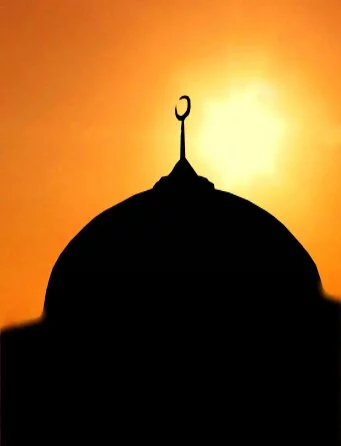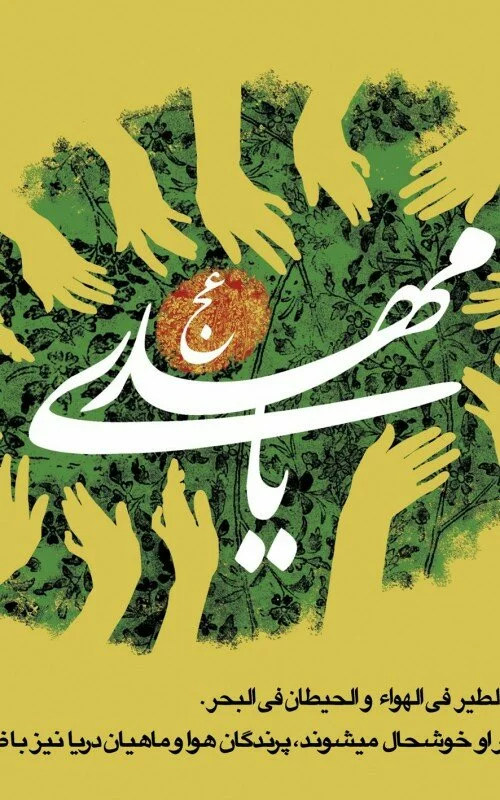Islam – The Complete Way of Life
November 4th, 2011 in Islamic Belief, Islamic Topics, Islamic view, Islamic World with
Quran is the manual for every human on this planet and Sunnah is the practice of each and every word in Quran. The followers of true Islam or Deen follow both Quran and Sunnah to achieve the pleasures and rewards here and life hereafter.
The biggest reward for any human can be his or her God whom he or she worships is pleased and this is exactly what one can do if follows the teachings mentioned in Quran. From marriage to education, from lap to grave every topic and subject is covered in the Holy Book Quran. So, the only need is to study and implement as well as learn the teachings of real Islam by following the Sunnah of Holy Prophet.
It is our perception and thoughts by the help of which we perceive things. We just stick to what we hear and what we see, rather than coming to a conclusion after a thorough research. That is a dilemma that needs to be overcome sooner or later if we want to live in a peaceful society that wants to progress.
The quest to find the truth should always be there and the thirst to find out the hidden facts should never be settled with anything. This quest is like an ignition that makes the body and soul going and ultimately it leads to the cognition of truth i-e knowing the truthful information. This cognitive framework related to the discovery of the truth can indeed be called as Islam. Truth always makes your life sound and so does Islam, which has nothing, but truth.
Islam is a complete code of conduct and has all the golden principles of living a happy and peaceful life. Exploring the principles and applying them to the daily life is the main issue. Islam provides us with the guidelines relating to every aspect of life like law, economics, banking and the list goes on and on. In short, Islam has the guidance for us in every walk of life, and it is up to us that how we respond to that.
Certainly, many of the European and Asian countries that have stepped on the road of development, have shaped their model according to the ideals of Islam and because of that, they have touched the heights of success. Following the principles of Islam, one can be rest assured that he is on the right track, and as the teachings of Islam have no hidden entity involved in it, anyone can look into the things to believe himself.
Philosophy of Religion VS the Philosophy of Democratic Politics
October 15th, 2011 in Islam, Islamic Belief, Islamic Topics, Islamic World with
 The Islamic Shariah laws are the rules and regulations, the moral and ethical codes by which all Muslims are asked to lead their lives. The question whether Islamic Shariah law is above democracy or not has been the subject of heated arguments for many years. However, today many Islamic countries and analysts show how the two can go hand in hand. While many people, including Muslims, believe that democracy is the way to go, the Islamic Shariah still controls the legal code of majority of the Muslim states. Even though extreme strictness and cruel punishments such as stoning and amputation exist in this law, the idea of the Shariah existing parallel to democracy, secularism and modernity is a growing one.
The Islamic Shariah laws are the rules and regulations, the moral and ethical codes by which all Muslims are asked to lead their lives. The question whether Islamic Shariah law is above democracy or not has been the subject of heated arguments for many years. However, today many Islamic countries and analysts show how the two can go hand in hand. While many people, including Muslims, believe that democracy is the way to go, the Islamic Shariah still controls the legal code of majority of the Muslim states. Even though extreme strictness and cruel punishments such as stoning and amputation exist in this law, the idea of the Shariah existing parallel to democracy, secularism and modernity is a growing one.
Various analysts throughout the world agree that democracy has its foundation in Islam and the Koran, as the Koran clearly states that mutual discussion is required among the people. The implementation of complete Shariah law, for many Muslims, is the last hope left for them to be united under one banner, to be free of autocratic corruption and to be treated with Justice and the rule of the law. On the other hand many favor the democratic or secular system in which the Muslims will be able to follow their religion out of their own spiritual needs and not due to the pressure put on them by the law obligating them to perform their religious duties.
Due to the mixed opinions of the Muslims all around the globe, the democratic law and the Islamic law have been incorporated together in three different ways, all in the hope of creating a balance between the two. The first system is known as the Dual Legal System which is practiced in majority of the Muslim countries. In this system Shariah courts are allowed to exist under a secular government and the citizens are permitted to take their family and financial issues to the Shariah courts. Many western democracies are considering the establishment of small level Shariah courts to tackle disputes regarding marriage, divorce, inheritance etc among the Muslims of their country.
The second system is known as the Government under God. This system is practiced in the United Arab Emirates, Saudi Arabia, Yemen, Bahrain, Kuwait etc. Under this system, Islam is considered the religion of the state and the laws and constitution is derived from the Shariah Law. The third system is the completely secular one, in which Islamist groups influence the local traditions however in the constitution there is no influence from the Shariah. Such a system is practiced in countries like Azerbaijan, Chad, and Somalia etc.
Even in secular Islamic states, the Islamist political parties affect the way of life reducing the crack between the state and the religion. Hence there is no denying that the Shariah Law makes it way up the system and has a control over the way the Islamic countries are run.
Nigeria licenses first Islamic bank
July 4th, 2011 in Islamic World, News with
 The most revealing thing about the latest new guidelines for non-interest banking issued by the Central Bank of Nigeria (CBN) on June 21; the provisional license given to Jaiz International to launch the country’s first Islamic bank subject to fulfilling the bank authorization requirements; and the revelation that the Nigerian Treasury’s Debt Management Office is studying the possibility of the country issuing its debut sovereign sukuk within the next year or so, is not the provisions of the above developments but the reaction of Nigerians (presumably) commenting on the websites of local newspapers and other such outlets.
The most revealing thing about the latest new guidelines for non-interest banking issued by the Central Bank of Nigeria (CBN) on June 21; the provisional license given to Jaiz International to launch the country’s first Islamic bank subject to fulfilling the bank authorization requirements; and the revelation that the Nigerian Treasury’s Debt Management Office is studying the possibility of the country issuing its debut sovereign sukuk within the next year or so, is not the provisions of the above developments but the reaction of Nigerians (presumably) commenting on the websites of local newspapers and other such outlets.
Disturbingly these ranged from vitriolic Islamophobic rants which linked Islamic finance to terrorism financing and forebodes the transformation of Nigeria into a new Jihadist haven, to flattering admiration for Mallam Lamido Sanusi, the governor of CBN, for rising above the critics and facilitating the introduction of Islamic finance under financial inclusion policy. The few voices that saw Islamic banking as an alternative form of financial management to the interest-based capitalist conventional system and more connected to the real economy and with a potential to contribute to development in Africa’s most populous country for the benefit of all Nigerians, hardly had a look in.
It would be unfair to draw generalizations from such a sample of comments, but in relation to recent statements from various groups and the sensitivity of the CBN over the matter, it becomes apparent that under the surface Nigeria is a highly sectarian society, which is further fuelled by the constant reinforcement of stereotypes on all sides of the ethnic and religious divides. Nigeria has a population of about 170 million which is roughly half Muslim and half Christian.
This is unfortunate because Nigeria in general is a highly educated society but with huge developmental challenges because of governance shortcomings in which the military have had a pervasive influence since independence, endemic corruption and economic mismanagement.
In June, the Dioceses in the Church of the Nigeria Anglican Communion appealed to the country’s House of Representatives and the Senate not to pass any legislation to facilitate Islamic banking in the country on the grounds that it would pose a serious threat to the unity of the federation; it would violate the country’s secular constitution; and favor one particular religious group.
Predictably, the Muslim Rights Concern (MURIC) of Nigeria weighed in, stressing the constitution guarantees freedom of religion to all Nigerians and that denying the establishment of Islamic banks would deny some Nigerians the right to have access to financial services based on their faith tradition, or alternatively force them to become unbanked or to use interest-based banking.
Continue Reading….
Islamic Wallpapers
February 28th, 2011 in Abaya, Allah, American Muslims, Ashura of Muharram, Book Reviews, Eid, Hajj, Hijab Matters, Islam and Media, Islam and Science, Islamic Architecture, Islamic Belief, Islamic Clothing, Islamic History, Islamic Literature, Islamic Topics, Islamic Wallpapers, Islamic World, Miracles, Muslim Character, Muslim Converts, Muslim Culture, Muslim Girls, Muslim Marriage, Muslim World in Pictures, Prophet Muhammad, Quran, Ramadan, Religious Divides with

 The most revealing thing about the latest new guidelines for non-interest banking issued by the Central Bank of Nigeria (CBN) on June 21; the provisional license given to Jaiz International to launch the country’s first Islamic bank subject to fulfilling the bank authorization requirements; and the revelation that the Nigerian Treasury’s Debt Management Office is studying the possibility of the country issuing its debut sovereign sukuk within the next year or so, is not the provisions of the above developments but the reaction of Nigerians (presumably) commenting on the websites of local newspapers and other such outlets.
The most revealing thing about the latest new guidelines for non-interest banking issued by the Central Bank of Nigeria (CBN) on June 21; the provisional license given to Jaiz International to launch the country’s first Islamic bank subject to fulfilling the bank authorization requirements; and the revelation that the Nigerian Treasury’s Debt Management Office is studying the possibility of the country issuing its debut sovereign sukuk within the next year or so, is not the provisions of the above developments but the reaction of Nigerians (presumably) commenting on the websites of local newspapers and other such outlets.

